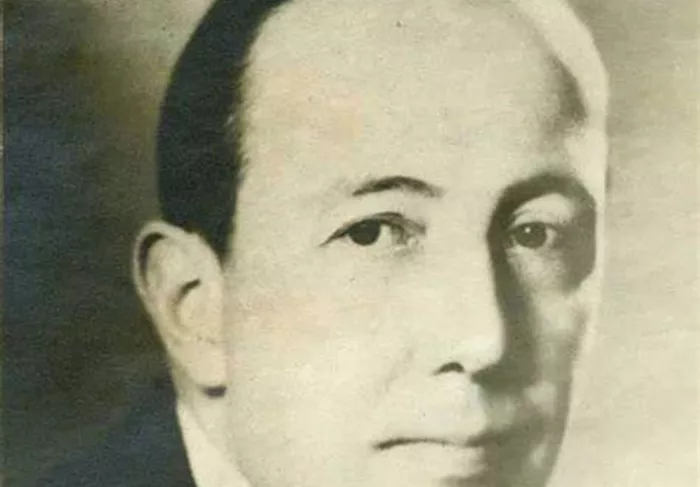William Rose Benét (1886–1950) was a distinguished 20th-century American poet, editor, and critic. Though often overshadowed by his younger brother, Stephen Vincent Benét, William Rose Benét carved out a unique place in American poetry through his lyrical compositions and editorial work. His career spanned several decades, during which he contributed significantly to the literary landscape of the United States. His poetry often reflected historical themes, romantic ideals, and a deep appreciation for tradition. As a central figure in American poetry of the early to mid-20th century, Benét’s influence can be best understood when examined alongside his contemporaries and the broader movements of the period.
Early Life and Education
Born on February 2, 1886, in Brooklyn, New York, William Rose Benét was raised in an intellectually stimulating environment. His family valued literature, and this early exposure greatly influenced his poetic development. He attended Yale University, where he became actively involved in literary pursuits, contributing to university publications and refining his poetic voice. His time at Yale laid the foundation for his later work as both a poet and an editor.
Literary Career and Major Works
William Rose Benét’s career was marked by his dual roles as a poet and an editor. His first significant collection, The Falconer of God (1914), established his reputation as a serious poet. The collection was characterized by its spiritual depth and medieval imagery, setting him apart from more experimental poets of his time.
One of Benét’s most well-known works is The Dust Which Is God (1941), which won the Pulitzer Prize for Poetry in 1942. This long narrative poem blends personal history with broader historical themes, showcasing his ability to intertwine intimate experience with the larger forces shaping the world. His work is often marked by a rhythmic fluency and a strong sense of tradition, distinguishing him from the modernist movement that dominated 20th-century American poetry.
As an editor, Benét played a crucial role in shaping American poetry through his work with The Saturday Review of Literature. He championed emerging poets, helped shape literary discussions, and provided critical insights that influenced the reception of poetry in the United States.
Comparison with Contemporary Poets
To understand William Rose Benét’s place in 20th-century American poetry, it is essential to compare him with other poets of his era. His brother, Stephen Vincent Benét, was a more celebrated poet, best known for John Brown’s Body (1928), an epic poem about the American Civil War. While Stephen’s poetry often dealt with grand historical narratives, William’s work was more introspective and lyrical.
Benét’s poetic style also contrasted with that of modernist poets like T.S. Eliot and Ezra Pound. Whereas Eliot and Pound broke away from traditional forms and experimented with fragmented structures, Benét adhered to more conventional poetic structures, emphasizing clarity, rhythm, and emotional depth. His approach aligned more closely with poets such as Robert Frost, who also favored traditional verse forms, though Frost’s themes were often more rooted in nature and rural life.
Another contemporary, Carl Sandburg, embraced free verse and a direct, populist voice that celebrated American democracy. In contrast, Benét maintained a more refined, literary style, often drawing upon classical and historical references. Despite these differences, Benét’s work contributed to the diversity of American poetry in the 20th century, offering a counterpoint to the stark modernism of his peers.
Themes in Benét’s Poetry
William Rose Benét’s poetry was characterized by several recurring themes:
Historical Reflection – Many of his poems explore historical events and figures, blending factual storytelling with poetic interpretation.
Romanticism and Idealism – Unlike the bleak and often cynical modernist poets, Benét retained a romantic vision, emphasizing beauty, spirituality, and human resilience.
Personal and National Identity – His poetry frequently grapples with questions of selfhood and the broader American experience, reflecting both personal and national concerns.
Spiritual and Philosophical Inquiry – Benét’s works often delve into existential questions, seeking meaning in a rapidly changing world.
Legacy and Influence
William Rose Benét’s contributions to American poetry extend beyond his own literary output. As an editor, he shaped the tastes and opinions of a generation of readers. His advocacy for poetry as a vital art form helped sustain literary appreciation in a period dominated by the rise of prose fiction and mass media.
Though he did not achieve the lasting fame of some of his contemporaries, Benét’s work remains an essential part of 20th-century American poetry. His commitment to lyrical tradition and his role in literary criticism ensured his influence on both poets and readers. His Pulitzer Prize win solidified his place in literary history, even as his reputation has faded in contemporary discussions of American poetry.
Conclusion
William Rose Benét represents a unique voice in 20th-century American poetry. His dedication to traditional forms, historical themes, and lyrical expression set him apart from the modernist experimentation that defined much of his era. As a poet and editor, he contributed significantly to the literary culture of his time, championing poetry’s role in American letters. Although not as widely recognized today, his work remains a valuable testament to the richness and variety of American poetry in the 20th century. Through both his poetry and his critical influence, Benét ensured that the beauty and power of poetic expression continued to thrive in an age of transformation.

